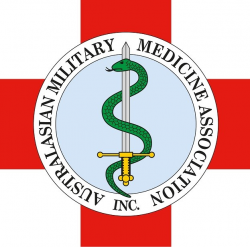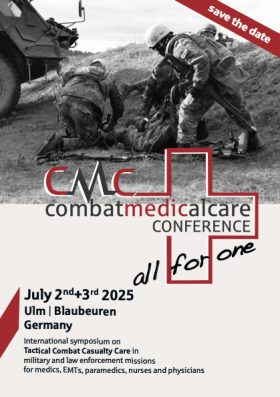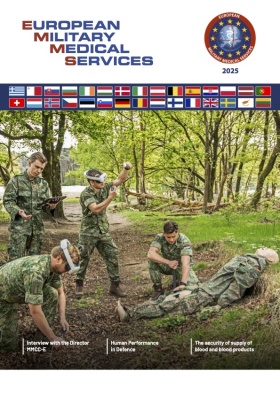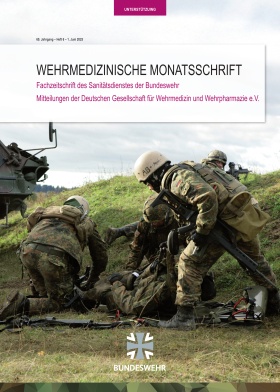
Almanac
Hungary, Republic of
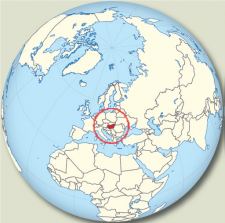
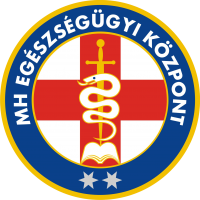
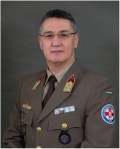
Surgeon General
COL Zsolt Dezső FEJES MD, PhD Commander
Source: Ministry of Defence Hungary
Róbert Károly krt. 44.
1134 Budapest
HUNGARY
Pictures and Graphics: Wikimedia Commons
Basic Task of the Military Medical Service
The HDF Medical Centre is a unique organization not only in the Hungarian Defence Forces but also amongst the medical institutions in Hungary. Under the Ministry of Defence with the professional direction of the ministry responsible for public health, directly subordinated to the Chief of Hungarian Defence Forces, it fulfils the responsibilities in the field of military medicine arising from national defence, NATO and international agreements, planning and exercising control over the execution of complex medical tasks in collective defence, peacekeeping and humanitarian operations.
As the only medical organization of the HDF, its responsibility includes professional control and oversight of aeromedical- and military medical screening (aptitude tests incl.) for personnel of the Ministry of Defence and the Hungarian Defence Forces. Other responsibilities include the epidemic safety, public health and hygiene tasks for the MoD and HDF.
The HDF Medical Centre coordinates the professional psychological activities in the HDF, conducts accreditation procedures for further vocational training at the units, provides psychological training for personnel nominated for missions and assisting them during their sustained operations and re-adaptation. It carries out aptitude tests and assessment in procedures of the second instance for those appealing against aptitude and review decisions of the first instance.
Structure
The HDF Medical Centre provides healthcare to the entitled military population.
Locations
Military Medicine:
- Institute of Aeromedical- and Military Medical Screening, Kecskemét
- Institute for Disease Control and Scientific Research, Budapest
- Medical Training Base, Budapest
- Institute for Force Health Protection
- Surgeon General/JMED office
Rehabilitation:
- Locomotor Rehabilitation Institute, Hévíz
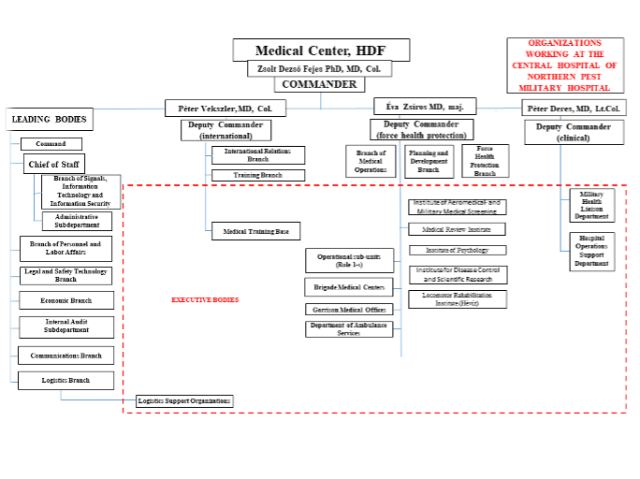
Source: Ministry of Defence Hungary
Military medicine:
Aeromedical, Military Screening and Healthcare Institute
The Aeromedical, Military Screening and Healthcare Institute is the only facility of the Hungarian Defence Forces where military and special aeromedical aptitude tests of military and special aeromedical personnel are carried out in one place.
The group of applicants for military service includes applicants for contracted and professional military service, the military scholarship recipients from the National University of Public Service, the non-commissioned officer applicants and the applicants of volunteer reserve personnel.
The procedure for general (military) aptitude tests is about "health, mental and physical fitness suitability for military service and the review procedure". In 2023 overall 15887 qualifications were performed.
The special (aeromedical) aptitude test for military and police flight personnel, flight service personnel, parachute personnel, explosive ordnance disposal personnel and divers is about “the medical fitness criteria for state aviation personnel and the rules for the designated agency about its activities for medical examination”. In 2023 altogether 2946 aeromedical tests was carried out. Including for certain population of applicants hypobaric hypoxia trainings in high altitude chamber according to STANAG 3114. In this year the Institute’s High Altitude Physiology Department contributed to Hungarian Astronaut Program (HUNOR).
The Institute provides outpatient care for professional, contracted, volunteer reserve, retired soldiers and civil servants of the referred military organizations of the HDF, for family members entitled to HDF claimants, for the professional staff of law enforcement agencies, and for the population of the districts subject to territorial supply obligations based on an agreement with the National Health Insurance Fund of Hungary (Hungarian acronym: NEAK). There were 88 000 cases attended the Outpatient, Radiology and Laboratory Depts. in 2023.
The Aeromedical Medical Centre (AeMC Kecskemét) is accredited by EASA (European Aviation Safety Agency) and supervised by the Department of the Aviation Service Authority of the Ministry of Construction is located in our institute. They perform tests and certifications necessary for the professional service activities of civilian pilots in all medical departments. This makes it unique in the country to ensure the performance of accredited aeromedical examinations in the full spectrum of both military and civil aviation. Annually approximately 300 certification issued to Aviation Service Authority Dept.
There has been continuous cooperation with the Department of Aerospace Medicine of the Medical University of Szeged in the field of education and vocational training for many years. Until 2025, our institute is a fully accredited vocational training place for aeronautical medicine and part of an accredited training place for occupational medicine (occupational medicine).
The HDF strategic aeromedical evacuation (MEDEVAC) capability is continuously maintained by an Airbus A-319 and medical personnel from our Institute (2 doctors, 3 specialized assistants). In 2023 the KFOR MASCAL incident was a major task.
Institute for Disease Control and Scientific Research
The Institute’s Public Health and Epidemiology Department deals with investigation of infectious diseases, epidemiological intelligence, seasonal flu and COVID-19 surveillance and provides public health and epidemiological training for military personnel going to operational tour.
As part of the Institute, the Scientific Library’s task is to ensure scientific information for research.
The Department of Immunization’s main task is the previous active immunization of home and in-theatre military personnel, according to the current field specific public health and epidemiological situation.
The Institute conducts basic and applied research into chemical, biological, radiological and nuclear (CBRN) weapons and medical CBRN protection in the field of biomedical science. It applies and broadens the specialist knowledge and develops the applied research methods. It is in charge of surveying the patterns related to the use of drugs and psychotropic chemicals and also of conducting regular screenings for the HDF service personnel.
The other responsibilities of the Institute include the development of biodosimetry methods and the performance of radiation and public health tests. One of the key tasks is the epidemic risk evaluation of operational fields.
Mobile Biological Laboratory (MBL)
The main, primary military application of MBL – as a special (partial) capability offered to NATO – is the highly accurate and rapid detection of microbiological agents and toxins deployed as potential means of bioterrorism – these agents are derived chiefly from environmental samples. Furthermore, in cooperation with public health and epidemiological organizations, MBL can contribute to the joint efforts by managing all cases when civilians are threatened and there is a need for the immediate application of microbiological diagnostic capability.
The development of the laboratory started in 2002, following the NATO Summit in Prague, and has been continuously adapted to the gradually higher level of NATO requirements.
Medical Training Base – Budapest
The Base runs 24 different courses, training and certification programs covering the planning and implementation of basic-level and advanced medical training programs for the professional and contract personnel as well as for civil servants.
Furthermore, the Base is responsible for running medical training for medical personnel planned for crisis management and peacekeeping operations, NATO- and EU-led response and stand-by forces and missions abroad. The medical training courses are aimed at providing basic and in certain cases advanced medical training for personnel with special military knowledge or in special military tasks (special operations forces, rescue divers).
The Base offers competency courses for medical personnel with the purpose to certifying the medical specialists of the HDF.
Institute for Force Health Protection
The Institute provides medical support activities, the provision of training and educational tasks and performs medical documentation management tasks.
At the Institute of Force Health Protection the Department of Psychology provides supervision, coordination of professional and scientific activities, and professional training of psychologists serving in the Hungarian Army. The Department carries out the coordination tasks of the psychological support of foreign military activities, and it also implements the psychological preparation and reintegration of the staff planned for military service abroad, as well as the related psychological professional tasks.
The departments provides psychological services supporting the effective functioning of HDF military organizations in the form of mental health counseling, especially for military personnel and their family members involved in foreign service missions. It is also responsible for carrying out crisis prevention and intervention tasks in the HDF staff and provides psychological support in crisis and disaster situations.
An integral part of our structure is Role 1, Role 2-level health care together with the highest Role 4 level capability. Each level from Role 1 to Role 4 capabilities has to correspond with NATO's requirements, expectations, procedures and a unified command and control system, and these capabilities must also meet the requirements of civil health law regulations and professional procedures in order to fulfil public tasks in addition to military tasks.
Role 1 level is integrated into the organizational structure of the Medical Center, the advantages of integration include easier command in joint tasks, unified structure, shared mission burden.
Given their combat medic qualification, Role-1 personnel provide primary care, dental and occupational health care, prevention, does epidemiological tasks, psychological support for military garrisons. Role1 personnel also provides training and support for reserve forces.
Role-2 doctors, specialists and professionals work at a civilian healthcare provider. They can be delegated to trainings and missions. Through the ROLE-2 ability of the Medical Center, soldiers on the battlefield can receive higher level of care: among other things advanced resuscitation; life, limb and function saving surgery is available to them.
Role 4 level capability is provided through civilian-military cooperation at the Central Hospital of Northern Pest - Military Hospital.
Field Deployments
The personnel of HDF Medical Centre continuously takes part in international missions and military exercises, such as European Union Force (EUFOR) Operation Althea, Kosovo Force (KFOR), United Nations Peacekeeping Force in Cyprus (UNFICYP) and HDF Iraq Training Support Contingent.
Rehabilitation:
Locomotor Rehabilitation Institute, Military Hospital, Hévíz
The aim of the Institute is to prevent development of locomotor diseases, deterioration of already developed disease, recurrence of old diseases and to liquidate after-treatment remnant symptoms. The Institute provides outpatient and inpatient care for the personnel of the military police, railway workers and provides treatment for the civilian population on a regional basis.
The Institute’s professional activity covers the rehabilitation of patients with vascular injuries, provides orthopedic postoperative care, rehabilitates patients with rheumatic locomotor diseases or neurological conditions.
(Last Update: 24th June 2025)




